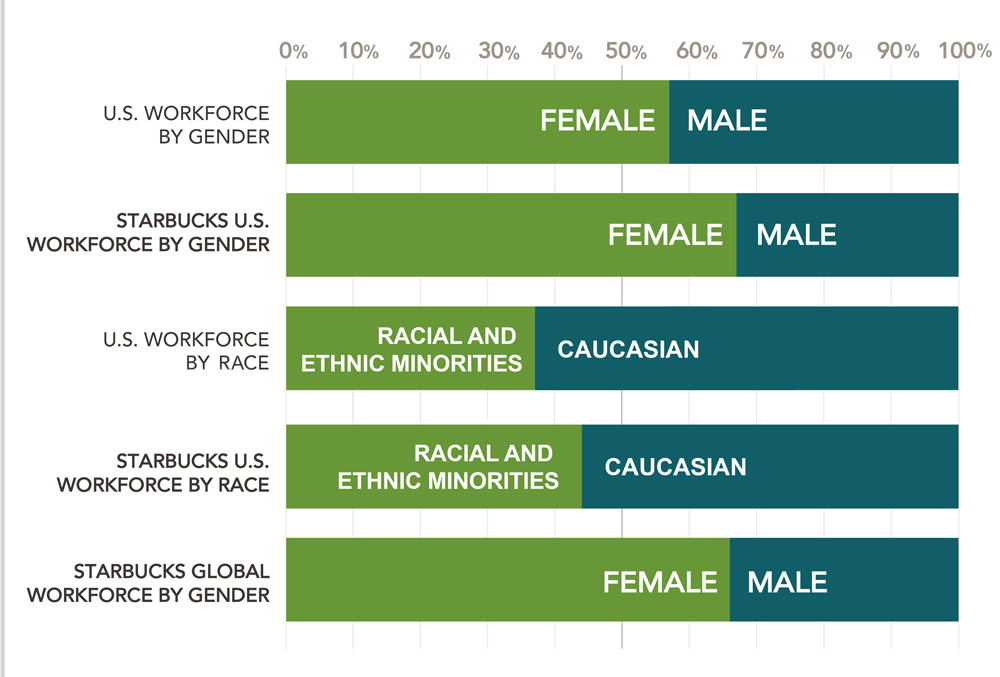
Starbucks announced on Wednesday that it has achieved 100 percent pay equity for women and men, and employees of all races in the U.S. The company said it is now looking to achieve pay equity for employees globally.
“The gender pay gap is real and Starbucks is committed to not only talking about it but addressing it,” said Lucy Helm, Starbucks executive vice president and chief partner officer, speaking at the company’s annual shareholder meeting in Seattle. Her announcement was met with thunderous applause from the audience.
“We believe it is important, as company of our scale, to help bring more attention to this critical issue,” Helm said.
The coffee chain said hitting this milestone was the result of years of work and commitment, and involved steps such as creating tools that make compensation decisions more subjective and not asking job candidates about their salary history.
Starbucks has long made employee benefits a priority, offering comprehensive parental leave and sick time benefits.
“Starbucks has consistently outperformed our industry in terms of pay equity, but it is incumbent upon us to do more,” Helm said.
In 2016, U.S. women working full time were typically paid 80 percent of what men were paid, according to Census Bureau estimates.
According to Helm, the gap is even worse in the retail sector, with women typically making 70 cents on the dollar compared with men.

Starbucks announcement Wednesday comes a decade after the company ran a partner compensation study to identify and address any gaps. Since then, the coffee giant has created a number of tools and best practices to combat subjective compensation.
One of those tools is a calculator that creates pay ranges based on experience. Raises and bonuses are analyzed before they are finalized to ensure that any systemic bias hasn’t crept into the compensation process.
“We tried to create tools to help us approach pay in a consistent and objective way, and remove the kind of subjectivity that can lead to pay bias,” Sara Bowen, an attorney who leads Starbucks inclusion, diversity, equity and accessibility team, said in a statement.
Bowen said that the company has also stopped asking job candidates for their salary history to avoid “importing” pay inequities.
“One of the most important things to get right is starting pay,” Bowen said. “If a woman comes into a company low, she tends to stay low. If a job candidate comes to Starbucks making 70 or 80 cents on the dollar, and we use that as the basis for her pay at Starbucks, we simply import gender inequality into our own system. Prior salary can be tainted and should not dictate how we pay our partners.”
Starbucks will provide pay information to any U.S. job candidate that asks, in an effort to boost transparency. The company hopes to create a culture where employees can discuss wages without fear of discrimination or retaliation.





























